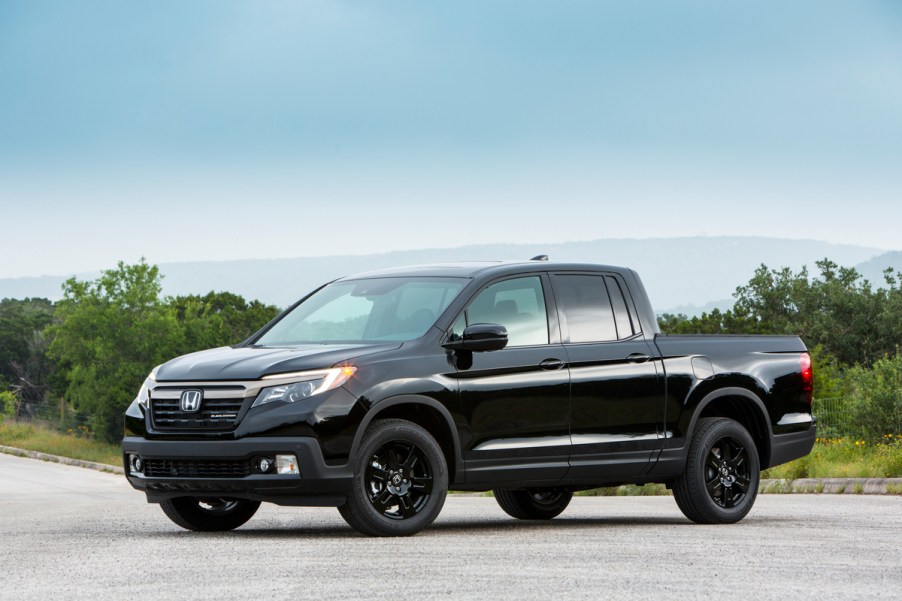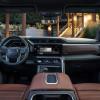
What CNet Hated About the Honda Ridgeline
While CNet found plenty to love about Honda’s mid-size pickup, the 2019 Ridgeline, the reviewers also noted some shortcomings. The top-rated 3.5-liter, V6 ranked a solid four out of five stars in the Roadshow Editor’s Choice awards and garnered a consistent eight out of 10 overall rating for performance, features, design, and media.
Still, CNet found the Honda Ridgeline lacking in a couple of significant areas, which caused the reviewers to question the value in such a high price tag. Let’s take a look at the sore spots.

Driver assistance features come up short
Don’t look for a comprehensive driver assistance package as a standard feature in the 2019 Honda Ridgeline. In fact, with the exception of the standard multi-angle backup camera on all of the models, you’ll pay a premium for anything beyond that.
That’s not to say that the Ridgeline is without its safety virtues. It’s earned high ratings with the National Highway Traffic Safety Administration with a five-star crash test. The Insurance Institute for Highway Safety named it as the only pickup for its 2019 Top Safety Pick.
Still, to include the following advanced assists, you’ll need to dig deep for the RTL-E and Black Edition’s $40,000 plus price tag:
- Forward-collision warning and automated emergency braking
- Lane-departure warning and lane-keeping assist
- Adaptive cruise control
- Blind-spot monitoring with cross-traffic alert
- Front and rear parking sensors
- Automatic high beams and LED headlamps
Lower your tech expectations
The Honda Ridgeline fell off the mark with its standard tech features. The five-inch non-touch screen with Bluetooth connectivity lacks the ease-of-use emblem. Nonresponsive user inputs ranked as one of the top frustrations. The other is the weak seven-speaker stereo system. At a starting price tag of $31,035, it’s not unreasonable to expect a little more bling in your sing.
Peeling off a few more bills will land you in the RTL-T trim category. At $38,045, you qualify for upgraded equipment that includes an eight-inch touchscreen, Android Auto, Apple CarPlay, and embedded navigation. However, even the eight-inch configuration lacks appropriate responsiveness.
The Ridgeline’s top-tier models, RTL-E and Black Edition, amp the package to include the 540-watt premium audio system and an in-bed audio system designed specifically for the tailgating crowd. Streaming from a variety of audio sources, including your smartphone, you can transfer the audio from the cabin to the cargo area. It provides you with up to three hours of listening pleasure on a charged battery. What a difference $42,000 makes.
The Ridgeline’s limitations notwithstanding
Even with its limitations, CNet found the Honda Ridgeline’s overall performance more than ample for most applications. On the plus side, it’s unibody frame provides a smooth ride and responsive handling that topped its competitors.
Its 280 hp and 262 lb-ft of torque combined with the six-speed automatic transmission offer a surprising amount of power with seamless takeoff and smooth shift. It’s also competitively rated for fuel efficiency with an EPA rating of 19 mpg in the city and 26 highway. It was beaten by the Chevy Colorado’s diesel engine that powers at 20/39 city/highway mpg.
CNet still considers the Honda Ridgeline a “solid contender.” Reviewers consider the standard offering more than what most people need in a mid-size truck. With some upgrades to the areas mentioned, reviewers contend it would place the pickup in “segment star” status.
At a starting price on the high side of $31,000, consumers might find value in research. Taking some time to flesh out the features that matter most and separate them from the ones you can compromise on will hopefully land you in a mid-size pickup that’s well-suited to meet your needs.


